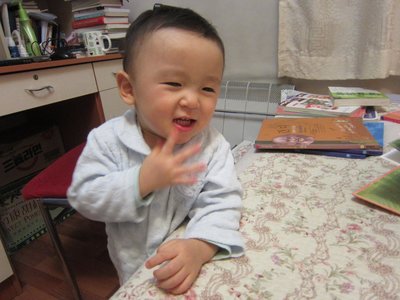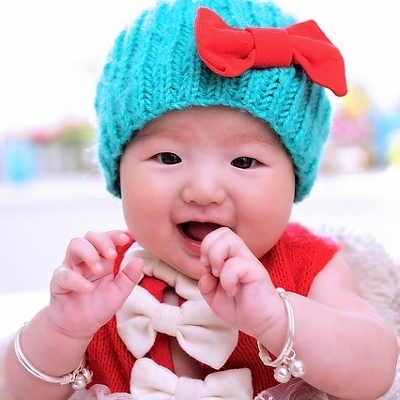 When your baby is born he comes into this world screaming, and it is a welcome sound to you. And, within the first year of his life he’ll babble every sound you can imagine until the child learns our language. Talking is one of the best ways a child can feel in control – it lets him tell you if he’s hurting, hungry, or if he’s afraid of things – things you have been guessing for months. As time goes on, your baby will soon develop language. Here is a quick guideline of the first year stages.
When your baby is born he comes into this world screaming, and it is a welcome sound to you. And, within the first year of his life he’ll babble every sound you can imagine until the child learns our language. Talking is one of the best ways a child can feel in control – it lets him tell you if he’s hurting, hungry, or if he’s afraid of things – things you have been guessing for months. As time goes on, your baby will soon develop language. Here is a quick guideline of the first year stages.
Infancy to Six Months:
During a child’s first month of life, your baby will likely communicate through cries and smiles. Eventually comes cooing. A coo is your baby’s first conversation, as this enchanting sound usually means she’s happy. Soon you will be able to understand which sounds are of delight and which are sounds are of being tired, frustrated, or even angry. As you play with your baby, you can repeat some of the coos and encourage her to repeat them. The more a baby exercises her voice box, the faster it develops. Controlling sounds is the key to talking.
Cooing is fun, but between the coos please use real words for everything you do with your baby. Talk to him as you diaper him, feed him, and explore the world together. He may not be able to repeat your sounds, but his little mind is absorbing vocabulary.
Six Months to a Year:
The sounds that come from an older baby may sound like a language from outer space, but your baby is trying to communicate. Respect his attempts and listen to him. If it sounds like a real word, do emphasize it. My grandson just experienced a winter out west, and with the help of the adults talking about the snow, he uttered a loud “nooooo†and pointed down to the cold stuff. So excited to hear this we all repeated with a happy sound, “SNOW.â€
At this age, it’s important to use real words as you transition throughout the day. Touch her hands, feet, and point to her eyes, mouth, and nose as you say the words. One day she’ll surprise you and touch her body part as you finish saying the word — a signal that it’s time to incorporate more words into her vocabulary.
Toddlers:
Toddlerhood is a fun time and you may find that your youngster will fetch familiar things as you articulate one-word commands. As soon as the one word familiarity happens, try adding an adjective to the communication as you begin two word sentences. As you fetch a ball, say big ball, round ball or even a red ball.
As your toddler is beginning to talk, reinforce language through books, singing songs and even some television. I don’t believe in putting your child in front of the “tube†all day long, but some quality TV time with educational children’s shows has been proven to add words to your child’s talking abilities. It’s amazing how many shows have evolved since Sesame Street during parenthood in my days.










